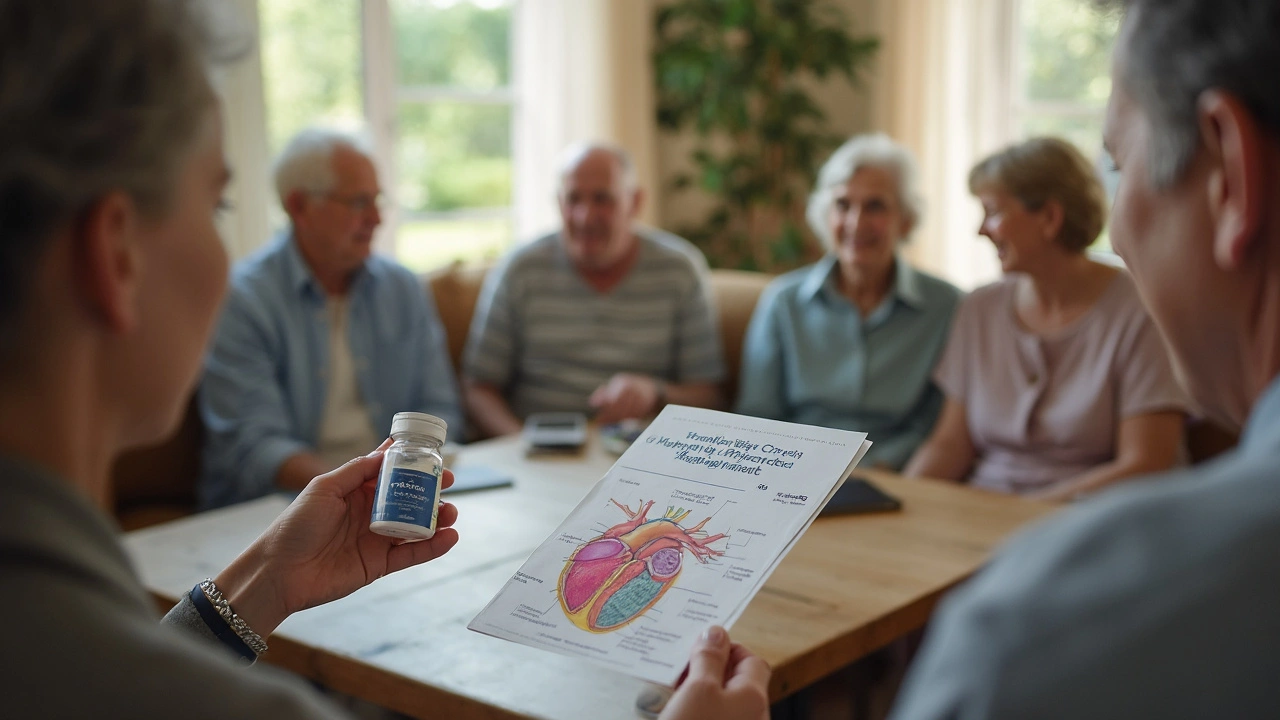Cholesterol: What It Means for Your Health
High cholesterol is sneaky — you can feel fine while plaque quietly builds in your arteries. On this tag page you’ll find practical guides on testing, lowering numbers, medication options, and supplements that matter. Use these articles to pick next steps, whether you need a simple diet fix or a talk with your doctor about statins.
If you’re new to cholesterol, here’s the short version: your body needs cholesterol for hormones and cells, but too much LDL ("bad" cholesterol) can clog arteries. HDL is the "good" kind that helps remove LDL. The goal is lower LDL and higher HDL, plus keeping triglycerides in check.
Start by checking your numbers. Ask your doctor for a fasting lipid panel or use a clinic that offers testing. Track total cholesterol, LDL, HDL, and triglycerides. Small changes in these numbers make a big difference over years.
Real ways to lower cholesterol now
Cut processed carbs and sugar. These raise triglycerides and can lower HDL. Swap refined carbs for whole grains, veggies, and beans. Eat more fatty fish like salmon twice a week for omega-3s. Add nuts, olive oil, and avocado for healthy fats that support HDL.
Move daily. Even brisk 30-minute walks five times a week improve your cholesterol and weight. Strength training twice weekly helps too. Lose excess weight — dropping 5 to 10 percent of body weight often lowers LDL and triglycerides.
Try proven supplements carefully. Plant sterols, soluble fiber (psyllium, oats), and red yeast rice can cut LDL for some people. Always check interactions — for example, red yeast rice acts like a low-dose statin and can interact with other meds.
When medication makes sense
If lifestyle steps don’t hit your targets, medications can be lifesaving. Statins are the first choice for lowering LDL and reducing heart attack risk. Other options include ezetimibe, PCSK9 inhibitors, and newer treatments prescribed by specialists. Talk risks and benefits with your doctor and ask about drug interactions and monitoring.
Use this tag to find related posts on medications, alternatives, and safety tips. Read about how different drugs compare, how alcohol or other medicines can change effects, and which lifestyle shifts show the biggest benefits. Bookmark pages you find helpful and bring questions to your next appointment.
Want a quick action plan? Get a lipid test, improve diet quality, add daily activity, and follow up in three months. If numbers stay high, discuss medication and possible specialist referral. Small steps now protect your arteries for years to come.
Don’t forget lifestyle factors beyond food and exercise. Sleep less than six hours, chronic stress, and smoking all hurt your cholesterol and heart health. Cut back on trans fats found in fried and packaged foods. Choose cooking methods like baking, grilling, or steaming. If you smoke, quitting improves HDL within months. Keep a simple log of meals and activity — it helps you and your clinician spot trends faster.
Ask about family history and genetic testing if levels are very high.

Crestor: Statin Benefits, Side Effects, and What You Need to Know
- May, 26 2025
- Daniel Remedios
- 12 Comments
Crestor is one of the most commonly prescribed statins for lowering cholesterol and protecting heart health. This article explains how Crestor works, what the science says about its effectiveness, what side effects people might experience, tips for taking it safely, and answers to common questions. It’s a clear, practical guide for anyone thinking about or already taking Crestor.
